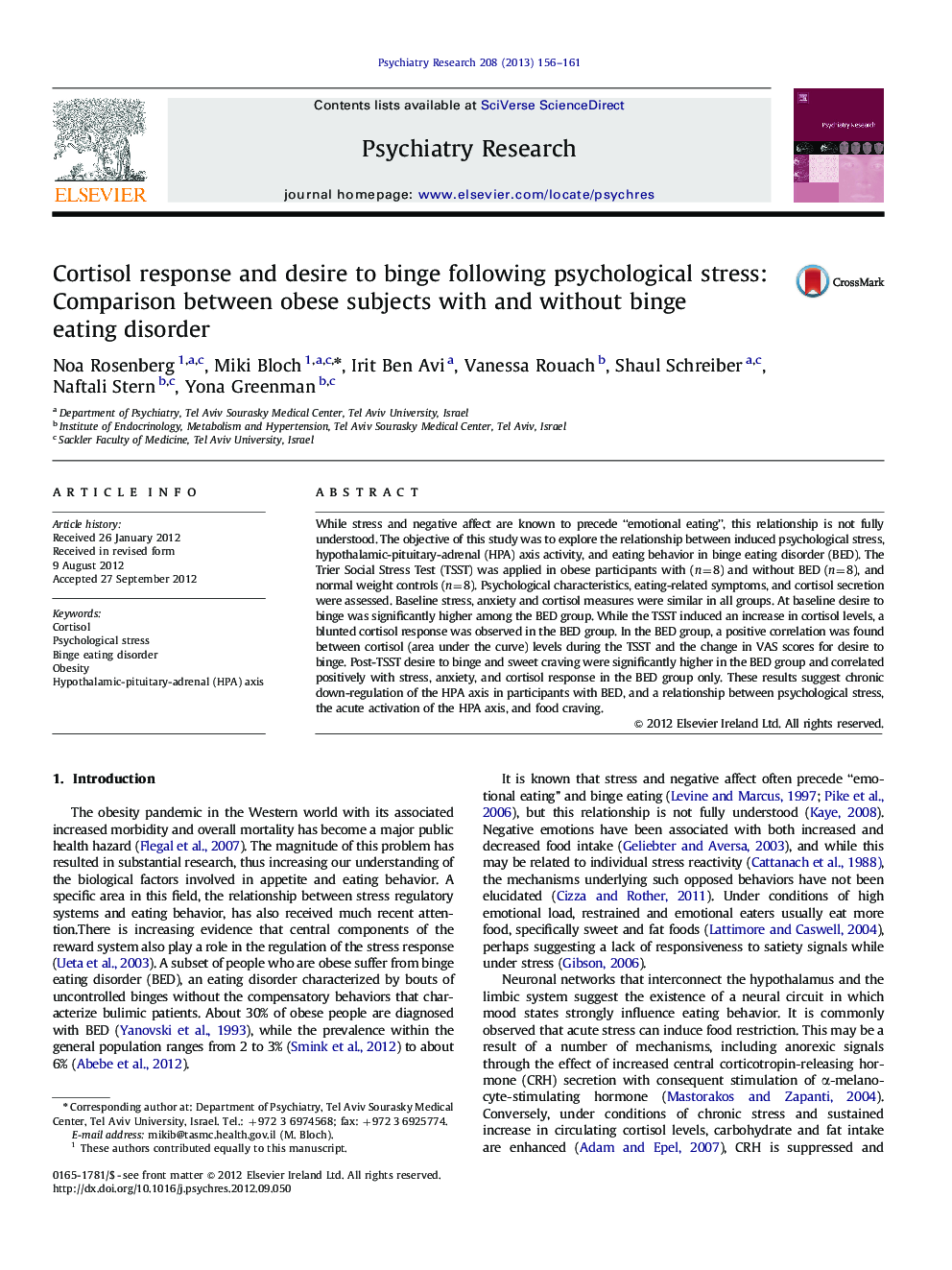| کد مقاله | کد نشریه | سال انتشار | مقاله انگلیسی | نسخه تمام متن |
|---|---|---|---|---|
| 333432 | 545921 | 2013 | 6 صفحه PDF | دانلود رایگان |

While stress and negative affect are known to precede “emotional eating”, this relationship is not fully understood. The objective of this study was to explore the relationship between induced psychological stress, hypothalamic-pituitary-adrenal (HPA) axis activity, and eating behavior in binge eating disorder (BED). The Trier Social Stress Test (TSST) was applied in obese participants with (n=8) and without BED (n=8), and normal weight controls (n=8). Psychological characteristics, eating-related symptoms, and cortisol secretion were assessed. Baseline stress, anxiety and cortisol measures were similar in all groups. At baseline desire to binge was significantly higher among the BED group. While the TSST induced an increase in cortisol levels, a blunted cortisol response was observed in the BED group. In the BED group, a positive correlation was found between cortisol (area under the curve) levels during the TSST and the change in VAS scores for desire to binge. Post-TSST desire to binge and sweet craving were significantly higher in the BED group and correlated positively with stress, anxiety, and cortisol response in the BED group only. These results suggest chronic down-regulation of the HPA axis in participants with BED, and a relationship between psychological stress, the acute activation of the HPA axis, and food craving.
Journal: Psychiatry Research - Volume 208, Issue 2, 30 July 2013, Pages 156–161